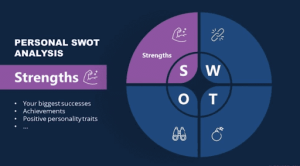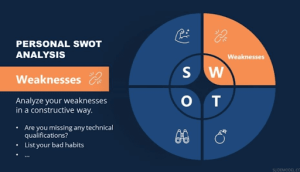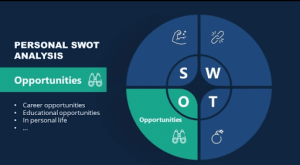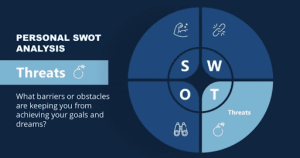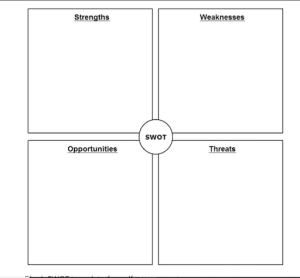How To Do A Personal SWOT Analysis While Choosing Your Career
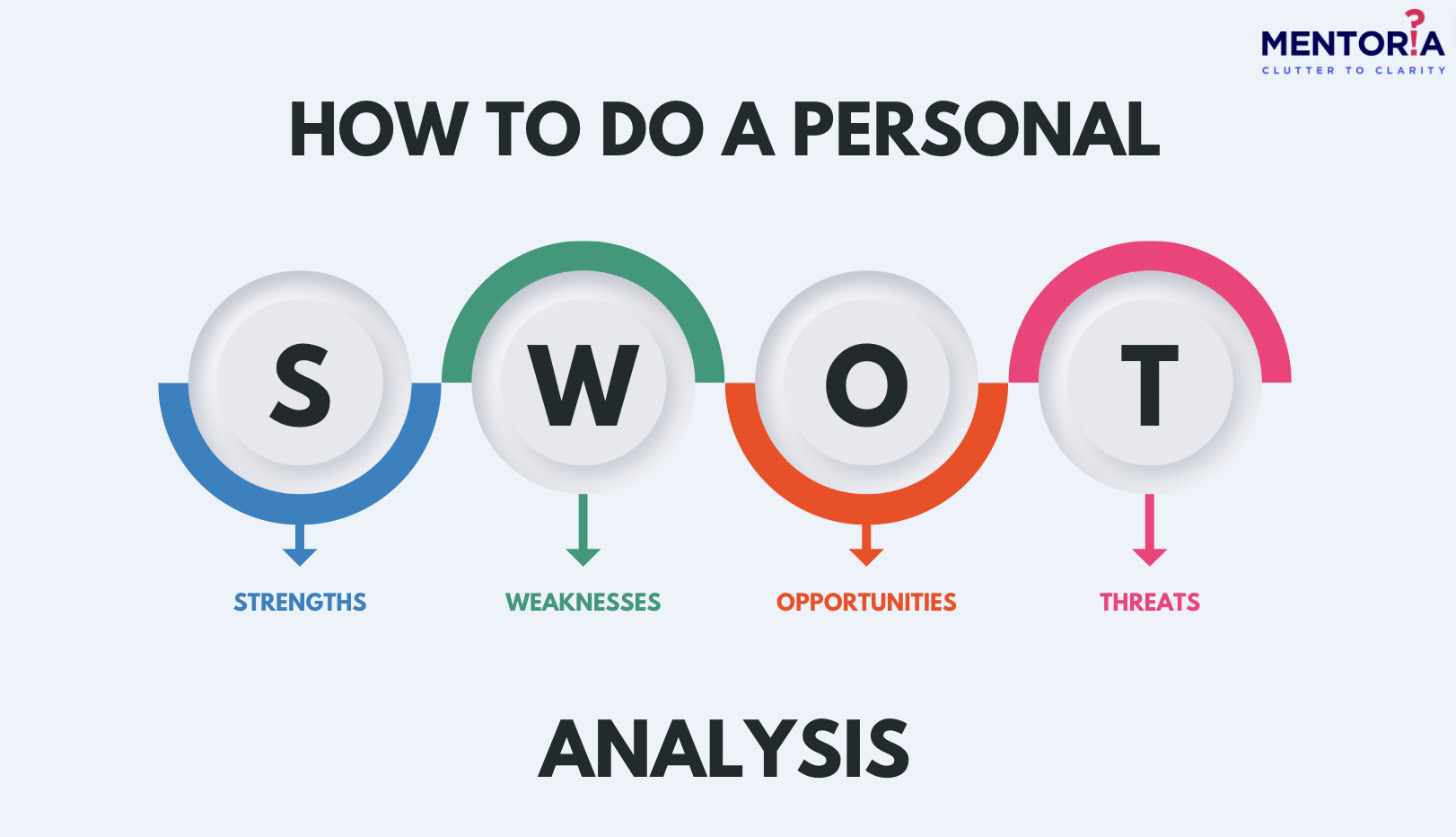
Did you know which is the most feared question of all time? To your surprise, it is not a maths problem or a scientific question. Then? Well, it is “Tell me about yourself”. Don’t you dread it when you hear this? What are you supposed to say when someone asks this? Wouldn’t it look like bragging if you say something good about yourself? Wouldn’t it be too self-deprecating to talk about your weaknesses? The worst is if this question comes up in an interview (which it sure does) How can you frame an answer for this without sounding too edgy or too over-the-top? Don’t you worry, we have got you covered! You can know yourself better through SWOT analysis and it is the most helpful when it comes to choosing a career! This will help you know your real strengths and weaknesses and how to articulate them in an appealing way! So, what really is SWOT analysis? Let’s find out!
“SWOT? What Now?”
Over the past few decades, organisations have employed the SWOT (Strengths, Weaknesses, Opportunities, Threats) analytical technique to help them detect present and future trends. However, this can be a great practice for individuals also. A SWOT analysis is not just a tool for business. You can use it as a helpful developmental exercise to consider, pinpoint, and assess your own personal or professional goals. Additionally, it might be beneficial for those looking for new employment prospects as well as those looking to advance their careers. Because how can you change something without even knowing its real capability? It is just like having better self-awareness but in a more organised way.
“What is the aim?”
“Do you desire a new position or a promotion within your existing company?”
“Do you wish to try a new job route or are you looking for personal growth?”
A SWOT analysis will help you organise your ideas, answer these questions and create your CV or promotion proposal. Knowing your advantages, disadvantages, opportunities, and threats can be a huge benefit. You will be able to navigate any situation with assurance and security if you can recognize and appreciate your strengths and opportunities. Once you know yourself you can ask for what you actually deserve and choose a career that matches your skillset! So without much discussion, let’s get started on how you can do your own SWOT analysis!
Process of Matching Your Talent with Opportunities!
If you want your SWOT analysis to be a useful tool for making decisions, it should be based on facts rather than opinions or emotions. Following are the steps.
- Strengths
First, you start with listing down your strengths. This might be very easy or very difficult for you but remember, it has to be real. Knowing this will give you more confidence during interviews or when pursuing a promotion at work. You’ll also remember things more easily because you’ve already written them down. “How to get started?” Here you go!
- Make a list of adjectives that best define you or how your friends and family would describe you as a starting point.
- What skills can you contribute to the team or position? Better still, what distinguishes you?
- Your qualifications, talents, and abilities can all be seen as strengths.
- You can also provide your degree, certificates, further training, and professional experience.
- Why are these qualities important to you and others? What do they enable you to achieve? They may be directly related to your work objectives or they may be less visible but nevertheless important. For instance, if you excel at assisting others in problem-solving, this may be a strength that benefits your career in a variety of ways.
- What further personal talents do you possess? Are you composed under pressure, for instance? Do you listen carefully? Are you a capable manager?
- Do you have strong connections in the industry? Are you good at networking? Super useful in industries like marketing, insurance, and advertising.
In SWOT, the “stand out from the rest” component is crucial. For instance, in a software business, everyone has a degree in software engineering, therefore having one is not a strength. A distinct situation might arise for maths masters. Be generous and fill out as many strengths as you can think of.
- Weaknesses
No one expects you to be perfect so your career SWOT analysis can include weaknesses in great detail. Your weaknesses are things you need to work on or aren’t very good at. We know how you want to present yourself as an excellent human and this self-esteem crushing exercise won’t help. However, it can be the most beneficial component of the investigation and when all is said and done, it might be the bit that inspires you the most.
This makes it easier for you to be ready to respond to them if they are brought up during an interview or performance evaluation. Being absolutely honest with yourself is the goal here. Knowing your weaknesses now can offer you a major advantage when it comes to career planning. List all your professional bad habits.
- What abilities do you lack that will likely affect your job in the future?
- What activities and situations do you often avoid? Why? What does this reveal about the person you are?
- Do you have bad habits? For instance, arriving late a lot, having poor communication skills, reporting late, etc.
- Do you, for instance, have trouble working in groups? Do you need to practise communicating better?
- Consider areas where you could improve rather than ones that are inherently your weaknesses.
- What do people think you could change? even if you don’t think of it as a flaw.
Assessing your areas of weakness will assist you identify where you need to make self-improvement investments.
- Opportunities
Opportunities can take many different forms and can sometimes slip by you without your awareness. The opportunities on your list may be professional or specific to the sector you are aiming for. Consider resources, market trends, and other elements that may be helpful while making your list of prospects. You must be aware of the market opportunities for people with your qualifications and experience. Furthermore, you ought to be aware of the numerous businesses or organisations that hire individuals with your skill set. You can learn how to approach them for a job using this information.
- Examine the growth of the sector you are targeting. Are there any notable developments or changes in your sector that you may benefit from? Has a new trend in the industry or in technology developed that you can use in the future?
- Is there a new project in your company that you can join for your career’s sake? What relationships do you have that you could use to obtain employment opportunities?
- Do you know anyone who attended any of the institutions you are considering? Could they share their insights with you or arrange a meeting for you with a staff member?
The list can go on, the important thing here is to be aware of the opportunities around you and grab them! If the opportunities you generate align with your strengths, it’s often great. But occasionally, excellent possibilities present themselves in fields unrelated to your skill set. Before ignoring them, weigh the advantages and disadvantages.
- Threats
Think about outside circumstances that disfavour you when developing your list of threats. Consider yourself a business or a product, and compare yourself to others. It makes it simpler for you to recognize hazards in this way. Just consider the following question at this phase: What are the barriers—personal or otherwise—that stand in the way of your goals-setting objectives? Threats can also come from competitors, new industry regulations, or adjustments to the work market (such as unemployment or even a pandemic). Determine the threats and make an effort to remove those you can. Negative personality qualities are among the easiest to change when it comes to eliminating risk. Knowing about potential risks might help you create measures to reduce the risk or seize the opportunity.
Following questions can help:
- Are you performing worse in a similar function than one of your peers? Do you both wish to receive the same promotion?
- Are your personality traits preventing you from advancing in your career?
- Does anyone you know make these flaws worse or support them?
- Is your career in danger due to the rise of new technology or the decline of outdated ones? Because they didn’t take the time to grasp the newest technology, software engineers’ jobs frequently become stale.
While you can control internal or personality threats, you cannot control the external threats. The best part is you can make changes and solve the internal threats! For instance, if time management is a problem, you can consider hiring a productivity coach or developing a schedule and self-monitoring system. Here is a template to help you out!
Take Action, Get #CareerReady
Anytime is an excellent time because it is a self-evaluation. You will have a road map that outlines how to maximise your strengths and reduce your weaknesses based on the results of your SWOT analysis. Check your list to see if the opportunities and strengths outweigh the dangers and weaknesses. If you discover any additional dangers or weaknesses, think about how you may strengthen your position before moving forward with your plan. This will help you in knowing your skillset to choose a career, switch careers or even ask for a promotion!
Once you have your SWOT analysis ready, check for careers that require this kind of skill set and start applying! If you are still unsure on how to go about it then Mentoria is what you are looking for! You can sort out some bugs with the assistance of Mentoria’s career counselling and mentoring sessions. Our specialists assess your interests and drive to pursue them in addition to your talents and shortcomings. Regardless of where you are or what you decide to do, our aim is to help you thrive in life.

